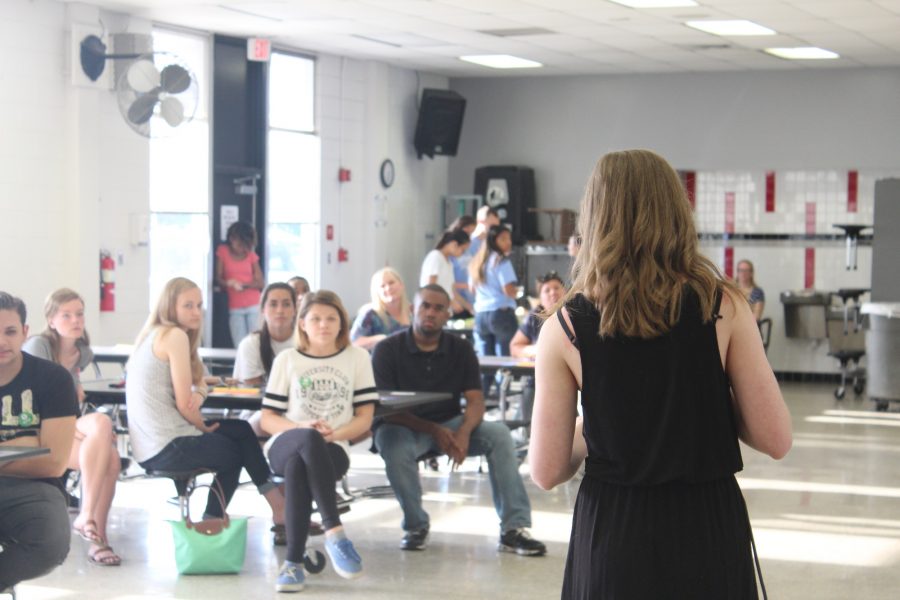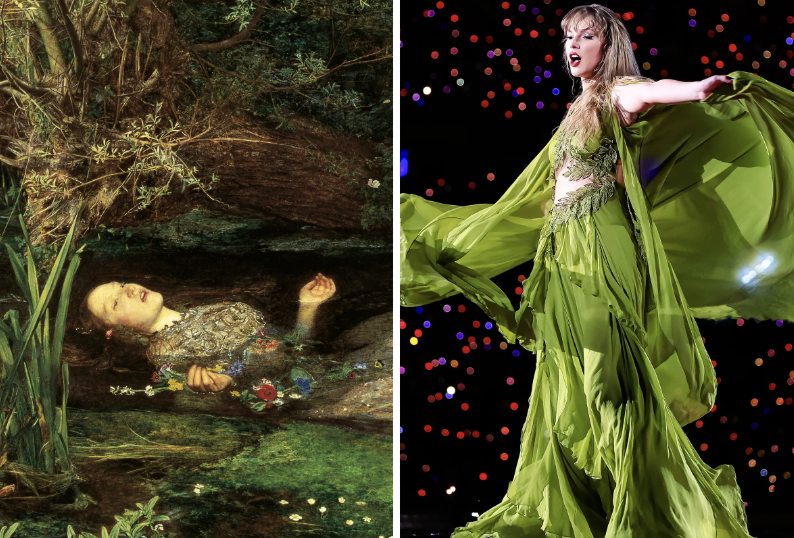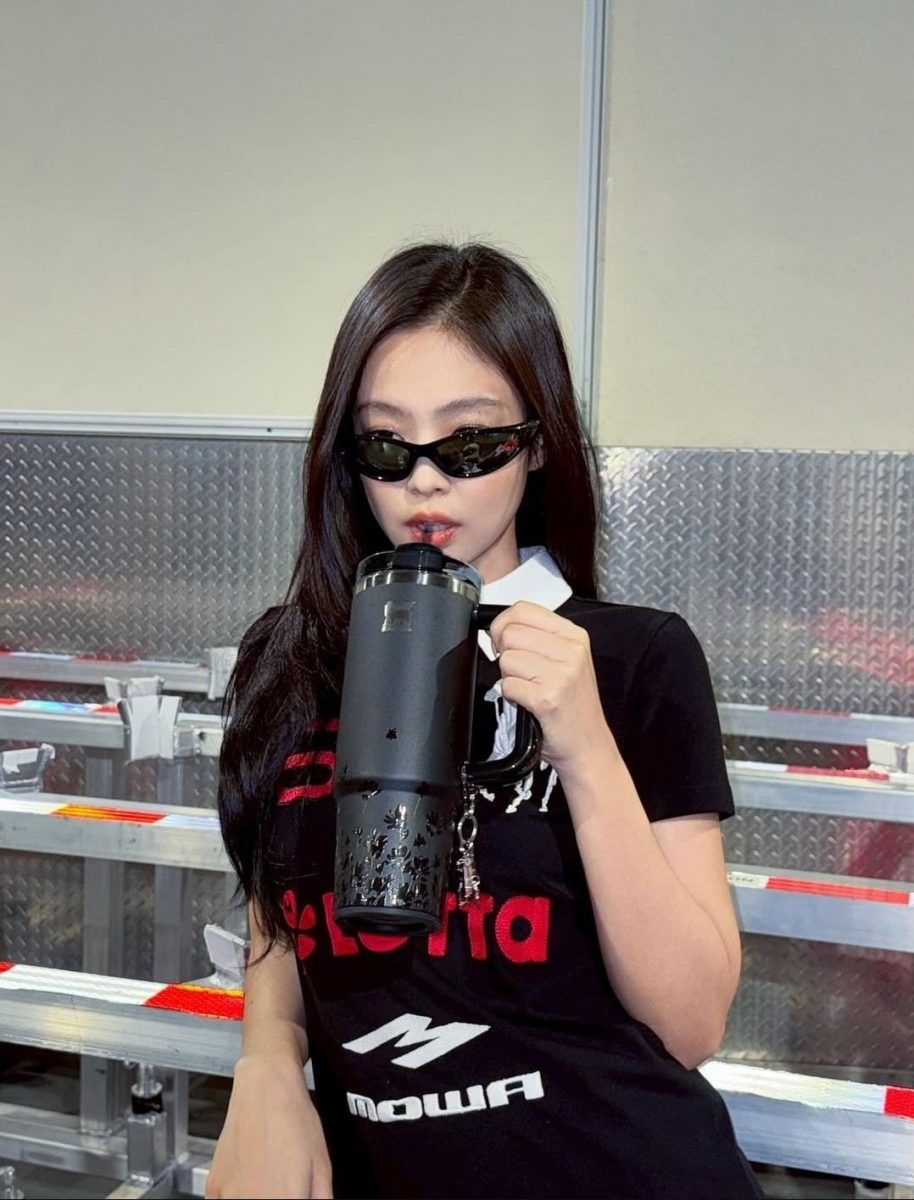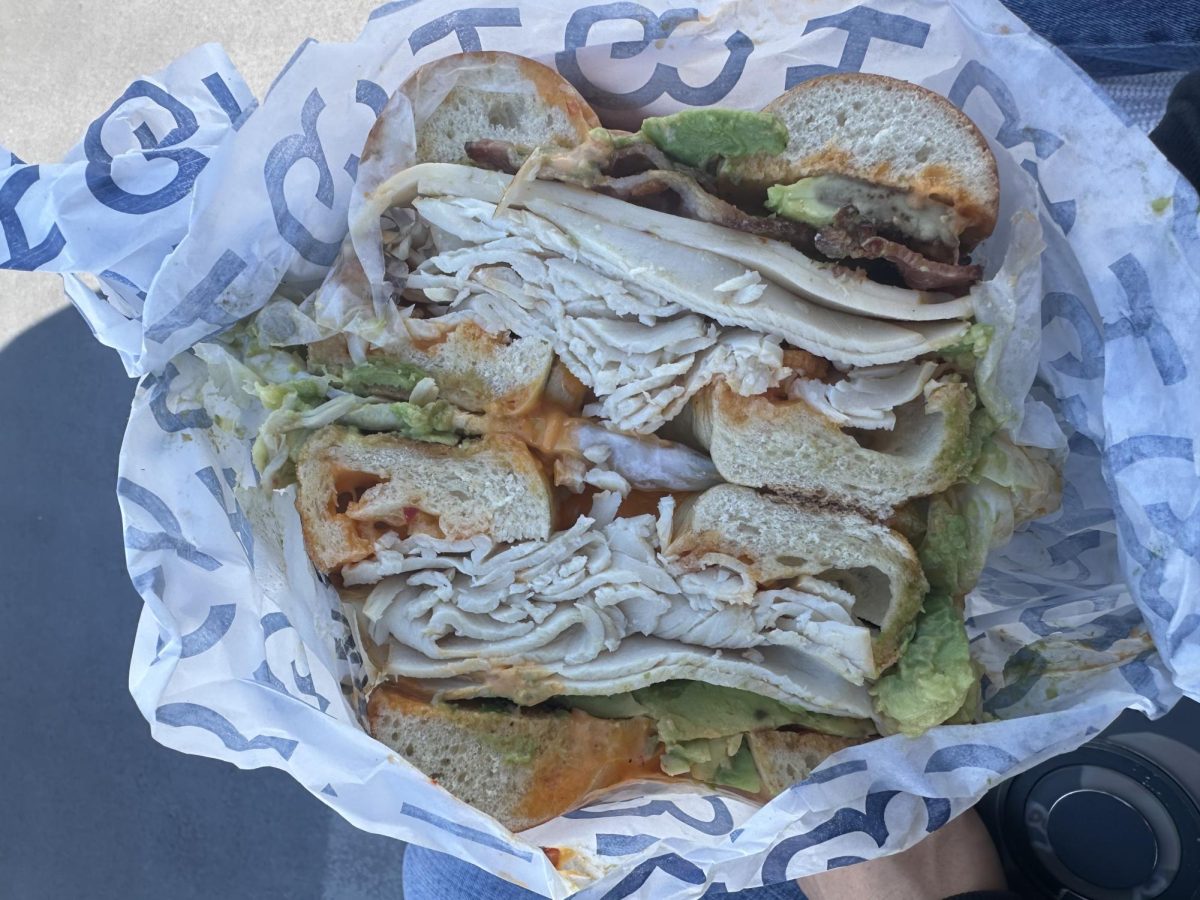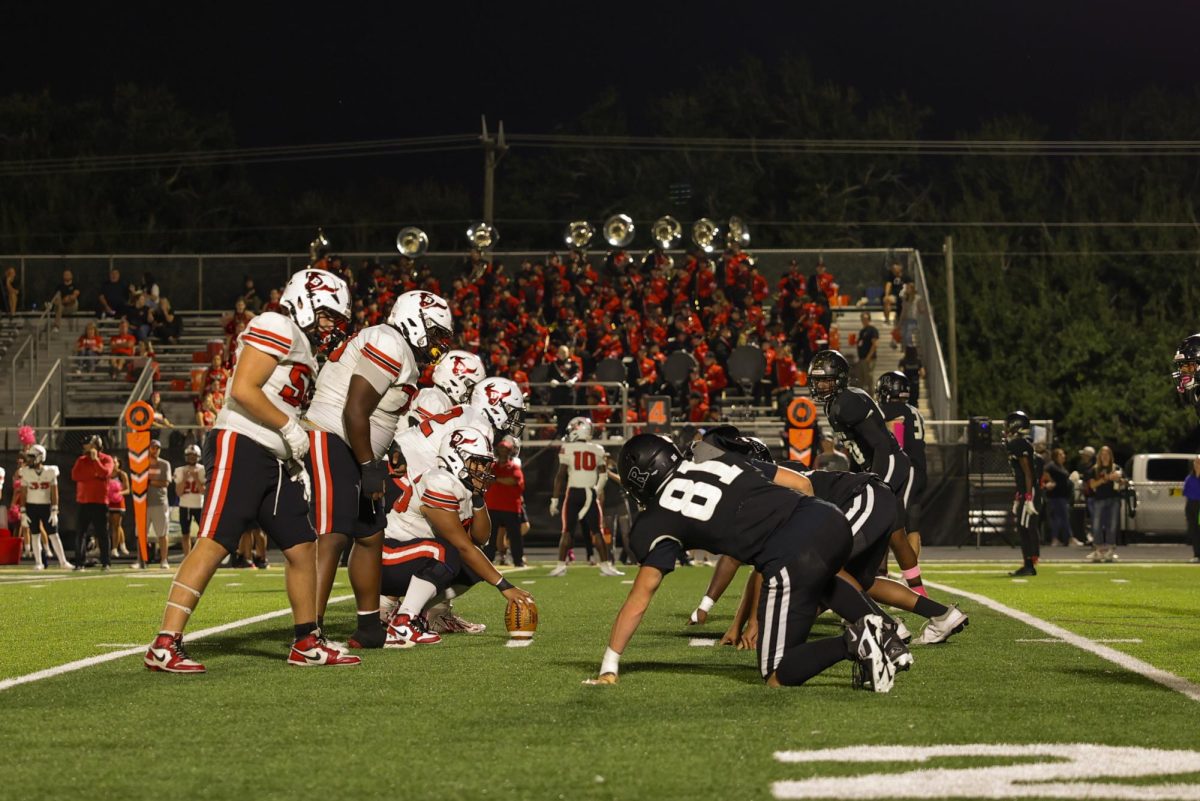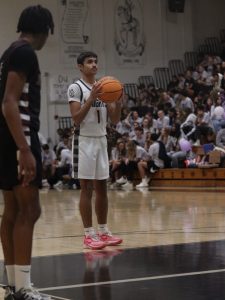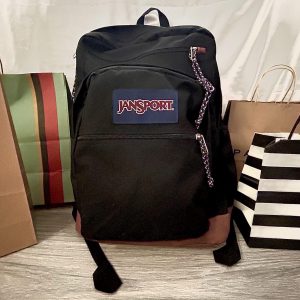A Slice of Life: Hungry for Awareness
April 11, 2017
Coming up on April 13, the Robinson cafeteria will host the third annual Hunger Banquet, an event sponsored by Be UNICEF club in partnership with Oxfam America to advocate for an end to world hunger. During the event, participants are given character cards and split up into lower, middle and upper income groups. Throughout the demonstration, natural disasters, employment crises and positive economic investments move participants up and down the socioeconomic hierarchy.
“Hungry for Awareness”:
SETTING: ROBINSON CAFETERIA, NIGHT
It was the night of the second annual RHS Be UNICEF club Hunger Banquet and participants had been divided into upper, middle and lower class roles.
LAUREN BROWN (’17), MATTI TRAUTVETTER (’17), MALEENA TRAN (’17), and ANTHONY WILLIAMS (’18) began in the lower class section but have been promoted to the middle class tables and are discussing the benefits to exercises such as this.
They begin by discussing their feelings on starting out in the lower class section.
MALEENA: It was really sad, because this would be my second time in the lower class.
MATTI: Same for me. Last year I was in middle class and then I got moved down to low income and it kind of was like a shock to me.
LAUREN: I didn’t really know how to feel about it because I can’t relate. I live here in America and I feel like I’m fortunate enough to have privileges.
MATTI: Yeah, but there are still real stories and you still feel that elation that you get moved up, and get better food and greater security.
LAUREN: After I read the story, I was feeling pretty bad, especially when they told us they could be real stories. I have two-year-old triplets that I can’t feed and that makes me, as a person, feel really bad.
ANTHONY: I expected it, though, because like 80% [of people] you’d expect to see in the low income.
MATTI: Yeah, you’d see everyone on the tarps [for lower class] and only a smattering at the [upper and middle class] tables. It puts it into perspective just how many are affected by poverty and hunger every day.
MALEENA: On a happier note, if these stories are on UNICEF cards, then they’ve probably been helped out by UNICEF and they might have a slightly happier ending. Because people know their stories…
MATTI: I really hope so.
LAUREN: People need to get these stories out.
MATTI recalls her experience from the previous year’s event.
MATTI: I had a good time, but then again, I really was like, “Wow, this is a problem that a lot of people are facing.” And they talked about people in America who are larger oftentimes can’t afford the more nutritious stuff, and that’s why they’re obese or that’s why- I really didn’t know that, I thought people just didn’t want to cook and used fast food for convenience. I didn’t really know they had food insecurity too.
LAUREN: I think a lot of times we think about poverty and poor people and all of that, but we don’t have something real to visualize.
MALEENA: The only image I’m used to seeing is the starving little kids in Africa.
ANTHONY: From the commercials?
MALEENA: Yeah, and they just seem so shocking it almost doesn’t seem realistic, because while you have an emotional response seeing those pictures, you kind of continue to deny that it happens.
LAUREN: I feel hungry when I don’t have my three meals. I can’t imagine being hungry-
ANTHONY: For days on end.
LAUREN: Yeah. Only eating rice and, like, cereal bars.
The group then discusses ways to spread awareness of these issues.
LAUREN: Definitely things like this [are a great way to spread awareness]. I was really interested when I was invited to come. I didn’t know much about it, but being here really does open your eyes and I think it’s a really good experience, especially if you can get it on a larger scale.
MATTI: Yeah, like the whole community. Volunteer groups should definitely do it. It’s a really- it really puts things into perspective, honestly.
MALEENA: Our society needs to stop hiding this reality from people.
ANTHONY: That’s what America does.
MATTI: I also think it makes people uncomfortable to know… they don’t want to see it, they just want to focus on their own lives and what’s going on in their lives. They don’t want learn about Abdul, who lost everything because he got into one car wreck.
LAUREN: But people need to see it. They need to be exposed to it.
ANTHONY: I feel like Americans only want to see the good, don’t want to look at the bad.
MATTI: Like Cami [Ramey, (’16), former president of Be UNICEF] said, the US is one of the richest nations but yet we’re still very much affected by poverty.
…
Interested in participating in this year’s event?
RSVP to [email protected] and visit the “Robinson HS Be Unicef Club” group on Facebook. Admission is free. Attendance may qualify students to service hours and National Honor Society points. Don’t expect to leave with a full stomach, but expect to leave with a full mind.

